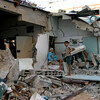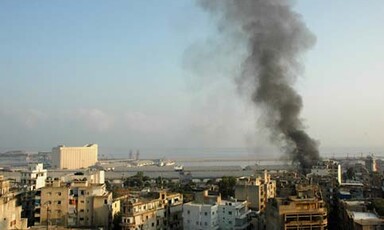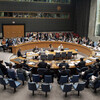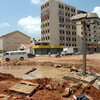
Gaza Strip Situation Report No. Seven
18 July 2006
The Palestinian death toll now stands at 100 (including 16 children) since the Israel Defense Forces (IDF) launched military operations inside the Gaza Strip on 28 June. The number of Palestinians injured has climbed to 300. Two Israelis in Sderot were injured by Palestinian homemade rockets. Since 28 June, one IDF soldier has been killed and twelve Israelis have been injured. Since 28 June, Palestinians fired 177 homemade rockets towards Israel. The IDF fired over 1,000 artillery shells into Gaza, and the Israeli air force conducted 168 aerial bombings on Gaza. Read more about Gaza Strip Situation Report No. Seven








